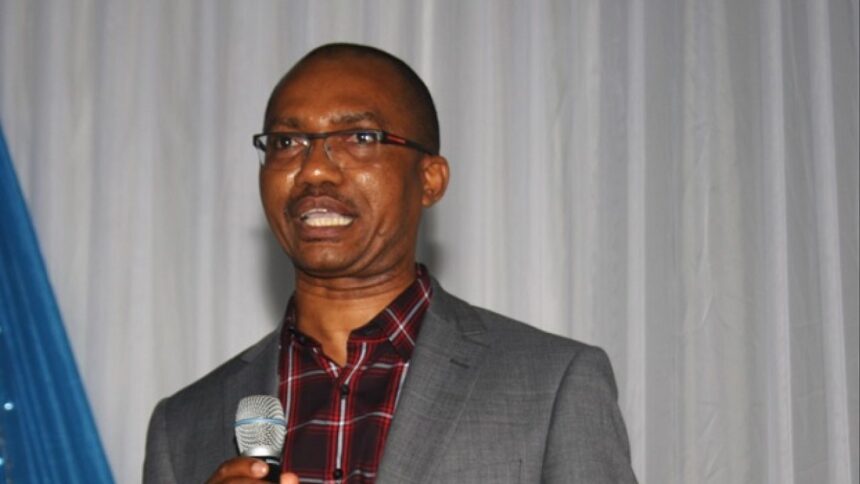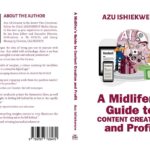At a time when many of his peers have retreated from the newsroom, Azu Ishiekwene, one of Nigeria’s most respected media figures, is charting a bold new path—teaching midlife professionals how to thrive in the digital age.
With over three decades in journalism, Ishiekwene—former Executive Director of Punch Newspapers and now Editor-in-Chief at Leadership Newspaper—has built a reputation for excellence, discipline, and clarity. But his recent work shows a man not content with legacy. Instead, he’s redefining what it means to stay relevant in an era dominated by algorithms and artificial intelligence.
Ishiekwene’s latest book, A Midlifer’s Guide to Content Creation and Profit, is a natural evolution of his earlier work, Writing for Media and Monetising It. The new volume calls on midlifers to harness tools like AI and new media platforms to amplify their creativity and even earn from it.
It’s not a marketing gimmick—it’s a reflection of the author’s own transformation. “Technology doesn’t erase experience,” he said at a recent event. “It amplifies it, if you’re willing to learn.”
The book, published by Premium Times Books, features a foreword by historian Professor Toyin Falola, who praises Ishiekwene for “redefining midlife productivity and ambition.” It argues that Africa’s creative and digital economies risk stagnation if they continue to equate innovation solely with youth.
A Bridge Between Generations
For many in the media, Ishiekwene represents a rare bridge between traditional journalism and digital storytelling. His background—rooted in mass communication from the University of Lagos and refined through leadership programs at Harvard and the Lagos Business School—gives him both authority and adaptability.
Colleagues say his real strength lies in curiosity. Unlike some veterans who treat digital disruption with suspicion, Ishiekwene has embraced it with intellectual hunger. Through his writing and mentorship, he is quietly building a movement of professionals who see midlife as a season of reinvention, not decline.
While Africa’s digital economy celebrates youth innovation, few talk about age inclusion. Ishiekwene’s voice exposes a blind spot in the continent’s tech narrative—how millions of midlife professionals remain underrepresented in creative and digital spaces.
His advocacy also challenges the structure of opportunity: startup funds, accelerators, and training programs rarely cater to those above 40. Yet, as he points out, these individuals often possess the storytelling depth and networks to build sustainable ventures if given the right tools.
Why it Matters
Ishiekwene’s evolving role signals a deeper shift in Africa’s media future—where experience meets experimentation. He’s not romanticising the past, nor glorifying technology. Instead, his work argues for balance: a future where digital innovation respects the craft, ethics, and narrative depth of those who came before.
In a time when content creation is often reduced to trends, Azu Ishiekwene’s message feels urgent: creativity doesn’t expire—it evolves. And Africa’s digital economy will only reach maturity when it learns to value wisdom as much as novelty.
Talking Points
Africa’s tech space is obsessed with youth — flashy startups, under-30 founders, and accelerator programs that reward speed over depth. But this obsession has created an age apartheid in innovation. Ishiekwene’s new approach calls that out. He’s proving that creativity doesn’t retire; it just needs new tools. It’s time the digital economy stopped treating experience like outdated software.
Many African professionals in their 40s and 50s are quietly fading into irrelevance — not because they lack intelligence or drive, but because tech culture has convinced them they’re “too old to adapt.” Ishiekwene’s movement isn’t just about writing or content creation; it’s a rebellion against this internalised digital inferiority complex.
The truth? Midlife professionals are sitting on Africa’s biggest untapped digital capital — wisdom and narrative depth.
Tech platforms in Africa still chase trends, not transformation. We’re building apps for everything but not cultivating creators with authentic stories. Ishiekwene’s model focuses on purpose-driven storytelling and digital literacy, something we desperately need in an age of viral noise and misinformation.
If the digital revolution doesn’t include the voices of midlifers — those who remember the analog world and understand nuance — it risks producing a culture without memory.





